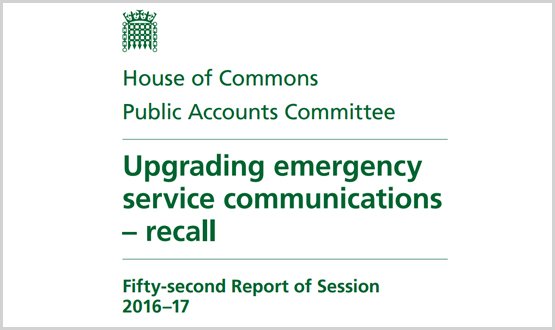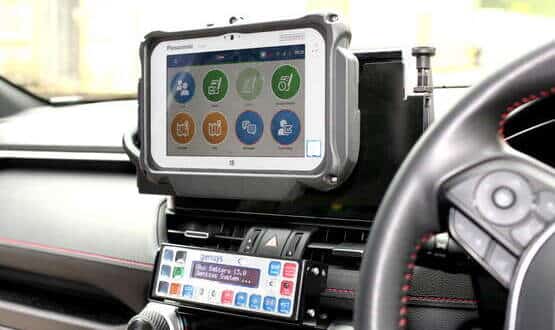Emergency services’ may be left unable to share radios for 6 months
- 3 May 2017

Problems in the procurement of an ambitious new radio communication system for the emergency services, means that Ambulance, Police and Fire services risk being left unable to communicate with each other for six months in 2020, the Commons Public Accounts Committee has warned.
The House of Commons’ Public Accounts Committee’s April report described the replacing of the emergency services’ communication systems as “potentially catastrophic” blow to the teams.
Currently the 105 different ambulance, fire and rescue and police forces communicate over a radio based infrastructure, Airwave, which is due to be replaced by the 4G mobile data technology, Emergency Services Network (ESN) in a long-running multi-billion pound project.
However, delays have pushed the go-live data back to September 2020, at an estimated cost of nearly £500 million.
The PAC report says that the Home Office’s sole mitigation for dealing with delays was to keep extending the Airwave contract, which now will not be possible beyond 2020
In January, Motorola informed the committee that Vodafone, a key supplier to Airwave, will withdraw a core network Time Division Multiplexing (TDM) service in 2020 which it will be unable to continue running the service.
“The news that part of the existing Airwave system will be taken out of service early strikes a major, potentially catastrophic, blow to the ability of our emergency services to carry out their job and keep citizens safe,” says the report.
The new IP service that Vodafone will replace TDM with is not compatible with the older Airwave service technology, says the report.
“This raised the possibility that emergency services may not be able to communicate with each other after March 2020 until transition to ESN is complete in September 2020.”
The report said that while Motorola does have a contractual obligation to provide Airwave post March 2020, the Home Office warned that “enforcing that obligation could damage supplier relationships”.
ESN has previously been described by the committee as high-risk, on an ambitious timetable and untried anywhere else in the world. It also noted deep concerns with the coverage, particularly with regards to London’s underground network.
The Home Office was due to start transitioning onto ESN in September 2017, but it will now begin in July 2018.
The National Audit Office previously estimated that it would cost £475 million to extend Airwave nationally for a year.
The government is expected to spend £1.2 billion developing ESN, £1.4 billion running down Airwave, and further £2.6 billion operating ESN until 2032.
The April report’s recommendations included that the Home Office enter into talks urgent with Motorola and Vodafone, and all risks reviewed as the “Department cannot afford to be caught off-guard again”.
Brandon Lewis, minister for policing and the fire service, said on 21 April: “We are clear that we won’t take any risks with public safety and there will be no gap in the emergency services’ communications provision. The existing Airwave system will continue until transition on to the ESN is completed.
“Keeping people safe is our priority which is why we are delivering the world-leading ESN to support our police, fire and rescue and ambulance crews who work so hard protecting the public and saving lives”.





1 Comments
Certainly needs to be reviewed and a solution or agreement reached soon as interoperability is key in major incident scenarios and large scale public events.
Comments are closed.